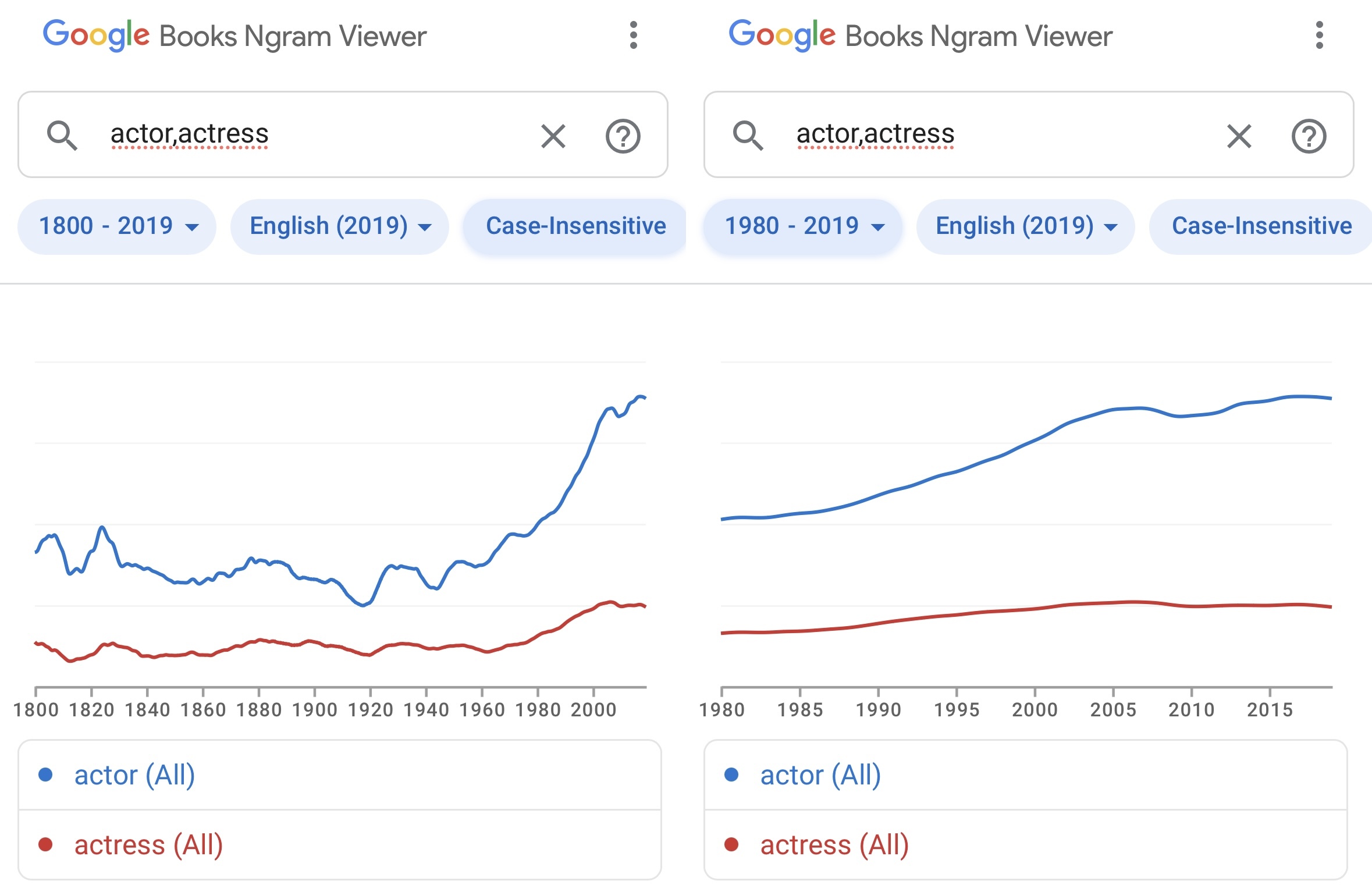Just wait until you look into French numbers.
How different languages say 97:
🇬🇧: 90+7 (ok, there is some jank in English numbers - 13-19 are in line with the Germanic pronunciation, i.e. pronounced “right to left”, as a weird hold-over from the more Germanic Old English)
🇪🇸: 90+7
🇩🇪: 7+90
🇫🇷: 4x20+10+7
And if you think that’s bad, the Danes actually make the French look sane…
🇩🇰: 7+(-½+5)x20
Even Danes generally don’t really know why their numbers are like that, they just remember and go along with it.
You know everytime your mention French number, there is always belgian or Swiss who will tell you :
🇧🇪🇨🇭: 90+7
☝️🤓
please… french swiss…
what the actual fuck is wrong with you, denmark?
…whats not?
Cope hagen?
Aebleskiver.
apple slices…?
While learning Danish I figured out that’s just the arcane incantation for the number. It’s language juju, and you just have to know that it be like it do. Yes, it’s syv og halvfems, but the reason behind it doesn’t matter anymore. The rest of the double digit numbers are a mess as well; 30 is tredive (three tens in old norse) but starting with 50 it’s this weird score (20) and half-to-score system.
When I first started learning my brain was desperately trying to make heads or tails of it and rationalize it somehow. And then I realized that was stupid, abandoned reason, and now I just utter these backwards ass numbers and we all nod and everyone is happy lol. Language is weird.
https://youtu.be/s-mOy8VUEBk?si=1dudvGSjUd9VI11D
🇩🇰🫡
It’s not easy running an isenkramstornunung when nobody remembers what anything is called
An absolute classic that I watch every single time. Kamelåså!
I don’t know what he gave me, but it was wrong 🤷🏻♂️
Here is an alternative Piped link(s):
https://piped.video/s-mOy8VUEBk?si=1dudvGSjUd9VI11D
Piped is a privacy-respecting open-source alternative frontend to YouTube.
I’m open-source; check me out at GitHub.
I can’t stop giggling about the Danish way of saying that. Like, I don’t even understand how that’s 90? LMAO.
That’s not real. I refuse to believe that.
It is, but we just say seven and half fives these days. Everybody knows the twenty are implied…
I think Finnish would be
🇫🇮: 9•10+7
Nine-tens seven
Where do you think nine-ty in English comes from?
I think it comes from nine-tens. But if you check, that commenter didn’t write it so.
Same for Japanese
🇯🇵: 9•10+7
九(kyuu) 十(juu) 七(nana)
Also, similar to English, 20 does not follow the pattern but instead has its own word. (Still written as 2•10 though)
Here is an alternative Piped link(s):
This guy doesn’t like the French way.
Piped is a privacy-respecting open-source alternative frontend to YouTube.
I’m open-source; check me out at GitHub.
deleted by creator
Meanwhile in CJK languages we just chill and say
9 x 10 + 7. Why doesn’t everyone do that?I guess “ninety” likely stems from “nine tens”, so I guess English isn’t far off
“Je voudrais un baguette” I once asked in a parisian boulangerie. I don’t think anyone has looked at me with the same level of disgust before as the older lady selling the breads.
“Voilà, une baguette.”, the “une” flying through me like an icicle.
deleted by creator
Tucke Carlso liked your comment

Why does he look like someone just shoved a vacuum hose up his ass and turned on the vacuum.
I remember standing in line for crepes in Le Havre, I just had my first year of French in school and I was practicing how to order in my head, nervously repeating “un crepe avec sucre”, and killed myself over not remembering the gender of crepe. So it’s finally my turn in line and I order nervously (I am 13 years old) and they reply with “pancake with sugar, no problem” and I’m just like 😭
Somehow people not even giving you a chance to practice your language skills is awful
Damn French, une crêpe and a pancake are not the same thing!
“Jay parlay France-says tray bee-en! Jaytude France-says pour treys anss in laycole!”
I was in Quebec, and the locals kept trying to talk to me in French. I can technically understand French, but not at those speeds. I only had to say that phrase once to anyone, and they immediately switched to English and begged me to not speak French again. If you sound like Peggy Hill attempting to speak French, then you’ve nailed this phrase.
Québécois is a whole other can of worms.
Seriously. It’s pretty discouraging and off-putting. Although, when I was in the Aquitaine I don’t think I got any of that.
… Maybe it’s because they remember being under English management and don’t want to give anyone an excuse?
I do find the French have very little ability to understand their language if it’s getting mangled.
I think it’s just taking the easy, accommodating and safe route mostly.
A friend of mine taught himself German for years (he lives in Canada) and then, eager to put his knowledge into practice, went to Germany for three weeks. Whenever he attempted to speak German, people would reply in English - out of niceness.
He was so depressed and discouraged, he went home, vowed to never speak German again, taught himself Russian, went to Russia for a semester, people there were happy to speak Russian with him. He even met his future wife there, so it’s a happy end I guess.
I don’t remember if I ever heard him speak German (after all, he vowed and was still very hurt), but if his German was just half as good as his Russian, he should have had no problem with being understood.
James, in case you read this, St. Petersburg was freaking awesome and you freaking rock.
Baguettes are distinctly penis shaped, so the French are just wrong about that.
Does this mean i’m gay ?
Not in itself but it is another data point for the theory. I suggest testing in controlled conditions many times despite it being a pain in the ass.
Ah the double entendre! Nicely done lol
Just wait to learn how we gender “dick” and “cunt” in French (hint: it’s not the way you’d think).
It’s the one thing people who aren’t fluent in a gendered language usually fail to grasp: Grammatical gender is in most situations completely separate from social gender. The grammatical gender in “une bite” has absolutely no social function and is not in any way contradictory to its traditionally opposite social gender.
Ironically it’s also why using the wrong grammatical gender feels so wrong/unnatural to a native speaker (not that it’s an excuse to be a dick to non-native speakers ofc): gender is not just “a social concept attached to a word”, it is an inherent property of the word that matters fundamentally to sentence structure and so misusing it throws everything off-balance. Francophones will much sooner accept someone close to them being trans than baguettes being male, and this is not a hyperbole.
Assigning gender to words is fucking stupid and adds unnecessary extra complexity to the language without any gaining any additional meaning. Personally I have no time for it.
My solution is replacing all les/la/l’ with a vaguely sounding “ll” sound.
I get the odd scathing look.
And occasionally someone will stop the conversation, and ask me to use the correct word, fully away of the shit I’m trying to pull.The old lady was a huge asshole. That’s the problem. And being in Paris.
Tfw the washing machine is gender fluid
I believe women sometimes use them to aid in the release of gender fluid.
I tried this it doesn’t work :(
Gotta use the dryer apparently
Why did my ex know this
You can use gender powder too
I use gender pods.
I hear that you can eat those.
Me speaking to a French guy last week -
“We’ve just been the the musée de l’automobile in Mulhouse”
“Sorry, where?”
“Mulhouse”
“Where?”
“Mulhouse”
"Aaaaaah I see! It’s pronounced [pronounces Mulhouse *exactly the same FUCKING way I just pronounced it]
😂 Happens very regularly
Just because your ears can’t hear a difference doesn’t mean that there is none. I deal with this a lot when Japanese ask me for help and can’t differentiate between certain sounds
Yeah in Japanese a few consonant sounds like ‘r’ and ‘l’ sounds or ‘h’/‘f’ or ‘s’/‘th’ or ‘z’/‘ð’ are basically heard as the same (an American ‘r’ might even sound like a weird ‘w’ to Japanese), and English has around 17 to 24 distinctive vowel sounds generally (based on quality) while Japanese has 5 plus vowel length and tones (pitch accent). As a result of the phonetic differences between the languages, it can be hard to hear or recreate the differences in sound quality (especially when it’s Japanese on the speaking/listening end, but Americans also sure have a terrible time trying to make Japanese sounds like the “n” or “r” or “ch”/“j” or “sh”/“zh” or “f” or “u”. they just perceive it as the same as the closest sounds in English)
In my experience, only God can hear the difference between Polish “dż” and “dź” / “cz” and “ć” (and the others)…
English also doesn’t have gemination (small tsu) which does make a difference in Japanese as well. Hearing that in very quick Japanese for words I don’t know can still be different. Same with vowel length. Once you know the word, it doesn’t matter as much how someone says it, but when it’s new vocab and the speaker is very quick, it can be tough.
I didn’t know the technical term gemination for っ, appreciate it. Can’t it manifest somewhat similarly to stops/plosives though? English doesn’t generally use those followed by the same consonant within the same word, but the phrase “port ten” is almost like the t consonant in itte, but with less of a pause in the middle. Contrast it with the word “portend” and you can see that we have a little bit more of a pause in “port ten”.
When I say “port ten” and ポッテン (with or without the long ‘o’) it seems I’m doing something different. Maybe a glottal stop and hard attack? I’m not actually a linguist though, so I could be very wrong.
I’m speak some Polish and dż is like job, cz is like check, sz is like shop, idk how rest is pronounced in other words
Wait, how does ch/j or sh differ from the English sounds? And what words use zh? I don’t think I’ve seen that romaji
They are all palatal sibilants in Japanese, while in English they’re palato-alveolar sibilants. Very hard difference for English speakers to hear, but the distinction is common enough to exist in many languages. And the “ch”/“j”/“sh”/“zh” sounds I speak of are just common variations of “t”/“d”/“s”/“z” that occur before “i” (they are spelled si -> shi, zi -> zhi/ji, ti -> chi, di -> ji).
Usually “zhi” isn’t spelled out in Rōmaji though, actually it’s often spelled “ji” even when they’re sometimes pronounced differently (so “zi” and “di” end up being spelled the same, perhaps confusingly, but most people pronounce them the same so it doesn’t really matter). But I think pronouncing them differently is more of an archaic, obsolete, ot dialectal thing anyways.
The “h” in “hi” also sounds different.
The spelling also changes in the same way before a syllable that starts with a “y” sound, e.g. syu -> shu or dyo -> jo.
Before “u” some consonants also change (hu -> fu, tu -> tsu, du -> dzu).
These sound changes don’t occur for all speakers/dialects, some don’t have a “shi” and just say “si” for example, but they are the most common and standard I believe.
No offense intended since I’m fully incapable of pronouncing tons of English words properly (fuck “squirrel” specifically), but as a Frenchman who has lived near Mulhouse for a few years and interacted with a lot of foreign students, what you said probably wasn’t close to being the exact same as that guy
For all languages I have learned so far ‘squirrel’ is really hard to pronounce for non-native speakers.
English: squirrel
French: écureuil
And the germans kill it with: Eichhörnchen
American English - SKWOOOOOORL
Ignore the letters in English, it helps just as much as ignoring the letters in French.
Squirrel is pronounced like skwir-rel.
He he he … No. It’s closer to skwurl.
NO IT FUCKING ISN’T 😂 Only if you pronounce mirror as MEEEEEER
I pronounce mirror like speegle 😄
Water is pronouced wader.
Fair, I pronounce it wa’er
If it makes you feel better, most Americans can’t pronounce squirrel either.
“Skwerl”
“Shit colored tree rat” is also an acceptable pronunciation.
“Yard Ninjas”
or
“Fuzzy Tail Gang”
To add to what that other person said, when you grow up your brain gets used to hearing the sounds common to your accent and you can even stop hearing the difference between certain sounds when someone speaks your language with a different accent!
In Quebec french there’s a big difference between the sound of “pré” and “prè” that doesn’t exist with some of the french accents in France and they’re unable to recreate that difference and might even be unable to hear it!
Yep. I took a language psych class in college, and we saw some examples of this that were crazy, especially being one of the people that can’t hear the difference.
I can’t remember the example, but just imagine somebody saying the same word to you twice and then a third party telling you the first person just said two different words.
points at danish vowel noises
most indecipherable I’ve ever heard in my life.
“Pré” and “prè” consistently sound distinctly different in most, dare I say almost all, accents in mainland France. The difference is the same with basically all words spelled with those vowels. “Ê” also sounds like a long “è” in most words for most people. “e” also sounds like “é” when before silent letters except for “t”, and sounds like “è” when before multiple letters or before “x” or before silent “t” or if it’s the last sound except for open monosyllabic words, and it sounds special or is silent elsewhere. “-ent” is always silent too. Obviously doesn’t apply to “en/em”, also special exception for “-er/-es”.
This video wouldn’t exist with the Quebecois accent because the three words wouldn’t be considered homonyms.
The vowel sounds in “près” and “pré” are very clearly different, and the sound in “prêt” changes from “è” to “é” when in liaison because it always sounds like “è” at the end of words (and separately, in closed syllables) and always sounds like “é” in open syllables otherwise (liaison triggers a change in the syllable structure which changes the vowel here). This does not contradict what I said. You said “(pr)é” and “(pr)è” sound the same, nothing about “(pr)ê”.
Here is an alternative Piped link(s):
https://piped.video/W9c38ck4AuE
Piped is a privacy-respecting open-source alternative frontend to YouTube.
I’m open-source; check me out at GitHub.
Maybe not in proper Quebecois, but I feel like most people here use the é/è sounds interchangably. Take “Il prétend” for example. It feels like that accent could be either é or è and people would still pronounce it the same.
Female, and I am sure there hides a boomer joke here
I’m countering with a lave-linge which is masculine, now where’s the boomer joke?
Enter German and Gendering: You can not say Programmer to address all Programmers in the room. You have to call them Programmerin und Programmer or Programmer:in or Programmende. And yes, most of these words aren’t even German but if you don’t use them you are a Grammar Nazi.
And btw, the fact that we address females with “die” does not mean we want them dead, thank you and have a good day.
It’s a little bit worse than that in fact. “Programmiererinnen und Programmierer” or “Programmierer:innen” or “Programmierende”. And if you get it wrong you are not a grammar nazi but more of a regular nazi.
/s just in case
Was ? L’écriture inclusive ist schwerer in deutsch als in französisch und es ist schwer genug in französisch (T_T)
Are you for real?
It is real. People have gotten mad at me for saying the 1 general (in my opinion in that case not-gendered) word instead of the slight pause and adding *innen. It’s quite difficult for non-native speakers to get used to it.
Meanwhile, in Dutch language, many female doctors, bosses, directors etc all prefer to be spoken to with the general “male” word, because they prefer to be spoken to on an equal term as their male colleagues and for the difference not to be made. Witnessing Germanic languages growing apart a tad further I guess.
In English we have a few gendered professions (waiter/waitress, actor/actress) and I feel like most people.lean towards the “male” term as the general term as well. In general it’s fine to call anyone an actor or a waiter but it would be weird to call a male actor an actress.
Actress seems to have fallen out of fashion, at least in personal experience.
Ngram only somewhat confirms:

“actrice” is one the few in dutch where it does still seem to matter to use the female version! Calling a female actress the male “acteur” would weird out a room i think. But if it’s a group of both male and female people, and you use the general “acteurs” it would be fine i think and “actrices en acteurs” would be fine too. While in german, only the “schauspielerinnen und schauspieler” of “schauspieler*innen” would be okay and just saying “schauspieler” to a mixed group would be very frowned upon.
I get the idea, i hate the implementation. I think it would be easier for everyone to just cancel one word and call everyone the same, instead of doubling down on everything, it’s doable in writing, but it’s a real hassle in talking.
It is also quite difficult for native speakers. I have nothing against the general idea, but the “:” solution is just shit. Destroys the whole flow of the language. Takes me out of a conversation/speech/whatever every time somebody uses it.
Language is a tool and is shaped and molded to be used by its bearers. You’ll get used to it and it’ll come natural to you. If it’s important to you, you’ll get there.
Btw: the slight pause you insert between the main noun and the gendered suffix is called a glottal stop. You do it without thinking about it for a bunch of words already. Consider “Spiegelei”. Notice the pause between “Spiegel” and “Ei”? Apply this same principle whenever you want to gender appropriately and you’re golden.
No one says Spiegel…Ei. if I say Kund:innen like that everyone will just hear Kundinnen.
And I also don’t think people will get used to it. When something new gets introduced into a language, the first natural thing is to adjust it to the speaking pattern. Which is not possible here as it is an explicit and intentional break of the speaking pattern. It will stay alien as it pretty much intents to stay alien.
Maybe children that are just learning to speak atm will, but current adults? Only those who want to really really convince themselves for ideological reasons.
As a German, I’m pretty sure they’re right. Look into glottal stop, it’s not really a long pause or anything. Think of the difference of the connection of “Spiegel” and “ei” in Spiegelei, and “Schreiner” and “ei” in Schreinerei. It’s this short contraction that stops airflow and then releases it again, and it’s present at the beginning of the “ei” in Spiegelei, but not in Schreinerei.
Here’s also the IPA pronunciations from Wiktionary:
Spiegelei: [ˈʃpiːɡl̩ˌʔaɪ̯]
Schreinerei: [ʃʁaɪ̯nəˈʁaɪ̯]
ʔ is the symbol for the glottal stop: https://en.m.wikipedia.org/wiki/Glottal_stop
❤️
As a native speaker I am 100% sure they are wrong. Or 100% of the people using that are doing it are doing it wrong.
As I said, it’s barely noticeable but you do make a stop in between. You’re just used to using the word in your daily vocabulary that you don’t notice it. And as mentioned before, if you care enough, you’ll do it - if you don’t, you won’t. A little close-minded if you ask me but that’s just my two cents. :)
Yeah, and as I said the whole point of the “:” is to make a explipcitly noticable stop. Thus breaking the flow of the language. Otherwise it will just sund like the female version. This is not comparable.
Sorry to hear that. For me it’s the other way round. While I nearly always use the generic masculine form when speaking directly to others that never happened to me. Then again at work it’s forbidden for me to gender in official postings since I did that once.
What I totally get is that online it’s a totally different experience and no matter whether you gender or don’t you may as well drop yourself into a vet of acid.
it was in real life and the person calling me out was a hardcore feminist. So yeah, the construction is being used to call out non-native speakers on their so-called ideological bias against feminists, or so it felt :s It weirded me out and continues to do so. To me it feels more inclusive to call everyone, male, female or non-binary, by one and the same word, instead of focussing on ones reproductive organs while talking about their profession or hobby or whatever.
Same in Spanish. We can say programadores (male gender plural form) to refer to a group of programmers, regardless of gender, as the standard says. However, in recent years it’s become common to say programadores y programadoras (male plural and female plural) or programadoras y programadores (female plural and male plural). Using only the male gender causes many people to complain, or so I’ve heard.
Is “dokter” even a male word? What’s the female version “dokterin”,“dokteres”?
The female version is Doktorin.
I’m dutch and didn’t even know this was a thing, is it something that is common in Belgium?
Dokteres enkel in dialect hier, maar in lokaal dialect maken we de lidwoorden ook mannelijk/vrouwelijk.
Groot verschil tussen “de die” (vrouwelijk) en “den die” (mannelijk) om iemand aan te wijzen bijvoorbeeld.
Bedankt ik kende de term niet, maar blijkbaar ben ik (in Nederland) in de meerderheid
In onderzoek van het Centrum voor Leesonderzoek uit 2013 werd “dokteres” herkend door: 42 % van de Nederlanders; 85 % van de Vlamingen.[1]
Due to the increased acceptance of non-conforming identities, it’s become more prevalent to either ask for pronouns, tell them to a person you meet, or have them somewhere visible in things like gameshows.
That’s quite as silly to me as this whole “what gender is this washing machine” nonsense is to English-speaking people.
Here in Finland, we don’t have gendered language. Even with third person pronouns, we usually default to “it” instead of “him/her/they”. Except for pets. They always get the proper pronoun “hän”. It’s just respectful.
So yeah, just like the English wonder why they have to learn different words for something needlessly gendered in France, I too, as a Finn, wonder why I have to learn different words for something needlessly gendered in English.
Right or wrong, calling a person “it” in English is incredibly disrespectful
We could do with something though. ‘Them’ doesn’t really cut it as it’s not clear if it’s plural or singular. ‘It’ is insulting.
If there was a good one, I’d just use it all the time for everyone. Why should gender be so important to identity? Isn’t it a regression to be so hungup on gender?
Singular “They” is literally almost as old as the word “They” itself.
People have gotten by using it for almost 700 years.
It’s not clear when you say they if you mean a person or a group. The term is for both. It’s ambiguous.
It’s not. Context provides you all the needed info in 99.9% of cases.
- “Alex is coming over after school, I haven’t seen them in forever.” Obviously means a single person.
- “There’s construction going on? When will they be done?” Honestly doesn’t matter but obviously means a group of people.
Sure, you need to provide context, but you’d need to with a pronoun anyway.
- “Where is she?” Who the heck is “she”?
- “What time is he finished with work?” Who are we talking about?…
You’re essentially looking at the words singular and plural definitions and coming up with a reason they don’t work. (Hey, another “they” and I’m sure you picked up on the fact that I’m not talking about a singular human.)
Can you even think of a situation that has ambiguity, which would actually come up in natural language?
Really easy and you know it. Of top of my head:
“Get who wrote this rubbish in here.” “I’ve message them. They are coming to the meeting now.” “You mean a team or an individual did this?”
It does depend how pedantic you want to be. I’ll dyslexic and I don’t process language like others and so I don’t like ambiguous. My default interpretation is frequently different. Human language has enough ambiguousness as it is. I’d like it reduced ideally.
“Who wrote this rubbish” is already ambiguous from the start, since it can be a singular author, or multiple. I admit they/them didn’t help resolve that ambiguity, but it isn’t the cause.
’Them’ doesn’t really cut it as it’s not clear if it’s plural or singular.
Beyond the other reply about the history of the singular “they,” we also have another prominent plural pronoun we use in the singular all the time. So often we don’t even think about it as being plural anymore. So much so that we’ve created new plural versions of this already plural pronoun.
“You.”
“You” was originally the objective case plural 2nd person pronoun in English, with “ye” being the nominative.
But “thou” was considered informal, like the German “du” or the Spanish “tú,” and the plural 2nd person was used as the formal. And this eventually supplanted “thou” completely.
And now we think of “you” as singular to the point where we make slang words like “y’all” and “yous” to have a plural.
I’m a native English speaker and I’ve used “they” as a singular third person neutral pronoun since before I even knew anything about trans or nonbinary people. It’s commonly accepted and not at all unusual usage, at least in American English where I grew up.
I’d be happy with ‘xe’ for gender neutral single-person pronoun. And for awhile I was using that from time to time - but because its rare and people aren’t use to it, using it is a distraction from what you actually are trying to talk about. I’ve stopped using it because I don’t really want to talk about it over and over. Sometimes people find it confusing. Sometime people are just curious. And some people find aggravating (because they don’t like the idea of degendering or changing genders).
I don’t mind the concept of a degendeted pronoun, but I would vote against “xe”. Just find it unpleasant to use the “x” sound so much. Don’t know what I would like, just x makes it extra weird on top of the “weirdness” of trying to explicitly evolve language.
Sure. And as with a lot of English, it isn’t totally clear has ‘xe’ is even meant to be pronounced. (I assume like ‘ze’).
Perhaps a nicer sounding version would be ‘ce’. Or whatever. To be honest, it really doesn’t matter to me. I’d be happy to just call literally everyone “she” or “he” or whatever. I’d suggest that we just use “he” for all genders, because many people on the internet seem to be doing that anyway; but obviously that would be upsetting to people who have been fighting for gender recognition. Pushing for “she” might be a bit better, but not by a lot. … So we’re probably in this mess for a long time. But I reckon if we just shake it up just a little bit as individuals, using different words and such, we’ll eventually start to see something change more widely.
In my mind I’ve always pronounced “xe” with the X sounding like the latter half of the letter said aloud, followed by the letter E.
Though I just looked it up and “zee” is the correct pronunciation.
If you get aggravated being degendering, or of others changing gender, it makes me think you are insecure about your gender. They should get over it. ‘xe’ would be good, but I don’t see it taking off with being popularizied some how. Some popular TV show or something.
I think they maybe meant the gender neutral they/them, which we turn to “it” for the inanimate?
Edit: on second read I’m not sure
I do mean that we Finns use “se” very often in everyday speech to refer yo other human beings, and “se” would translate as “it.”
Ofc I’m aware how horrible using “it” when referring yo people would be in English.
But if someone asked me to translate a sentence like “mihin se [a person] meni”, I would ofc not use a direct translation because of how offensive and wrong it would be.
I respect the distinctions languages have for genders, but I’m happy I grew up with one which didn’t have them. Language shapes thought. We don’t think of people as “it”, it’s just the colloquial form of the language.
In Finnish, if you had to give a formal speech or something, most people realise to default to “hän”, the 3rd person singular.
And if you’re doing customer service or addressing someone with the sort of respect you’d use titles with in English. Then you’d address the person in the second person plural instead of the second person singular.
Just like English did hundreds of years ago, and it worked so well that in the end, English left the second person singular out of the language altogether. It still exists, but isn’t really used unless thou wants to pretend being from Elizabethan Britain.
Which is why I never do, obviously.
This is one of those things that, if translated directly, would be really, really bad.
Now I’ve spoken English for more than a quarter century, so my mouths used to it already, but I remember when learning the language, it was rather hard for the brain to keep switching between “he” and “she”, as it was not a distinction my brain had to make before using English.
I mean obviously I could differentiate women and men, but having to use different pronouns for both?
Quite needless.
Yeah I don’t see anyone accepting being called “it” in English; that’s how you refer to farm animals bound for slaughter or undesirable ethnicities you’re going to exterminate.
You speak an uralic language, brother. Gender orno gender, having to learn a billion rules for conjugation is the problem there
Polish speaker here. We not only have gendered nouns but also verbs and adjectives.
Spanish speaker here. For as chaotic and wild as English is, I’ve always appreciated that it has no gendered nouns. Why are chairs female? Makes no sense
Dick in French is, you guessed it, female.
As are mustache and balls. Meanwhile, bra, vagina and boobs are male.
Don’t tell Republicans
Maybe you are interested in Finnish. We do not have gendered pronouns either. Everyone is just “hän”.
So you’re saying Hän is Solo?
Hän man is Speedy
Hold my Duolingo owl, I’m gonna look up Finnish that sounds awesome
deleted by creator
Clearly, because chairs are obviously male (German). Anything else is just silly.
I’m sorry, French here, but a chair can be both. It depends of the type : Une chaise is obviously feminine while un siège or un fauteuil are definitely masculin. Also Germanic language like English and German mixing these two meaning are silly languages.
Why. Just why? It’s just you French and your obsession for…
la silla vs el asiento (Spanish)
Fuck.
I think we just spotted a cultural fracture btw people of Romance language and the one of Germanic language.
Yes, also, mice are obviously female.
… but rats aren’t.
Chairman, chairwoman, or chairperson?
Somone has to come up with the word chairdude. And some corporate bean counter will invent the word chairhuman to show how diverse they are.
Grammatical genders are just that. Grammatical. It’s a classification scheme. Latin had neutral nouns and plenty of languages make grammatical differences between animate and inanimate nouns. That current romance languages make a deliberate division between “male” and “female” nouns does not mean they have to correspond to actual features of human beings.
That being said. It’s ridiculous that agua is femenine but with the definite article it has to be el agua in singular but las aguas in plural. All the explanations by RAE simply amounts to “we like it this way, lolol”.
polish speaker too, polish is weird smh
How does that work out? I mean in french you’d gender it by what it is defining. A yellow car, the “A” is gendered the same as the cars gender.
Oh.
I think I get it. That must be confusing for foreigners!
Cheers Polish brothers and sisters!
Nah. Having pronouns would be too easy. We are changing the end of the word. Yellow would be “żółty” if male, “żółta” if female and “żółte” if genderless or plural. Unless male plural, then it would be “żółci”.
So a bit like French maybe, faché, fachée, fachés or fachées for example depending on gender and numbers.
While gendered nouns are stupid, I at least appreciate Italian because you can just learn the word and get its gender from the end part of the word. In German, however, it’s completely random and you have to learn the gender with the word.
I don’t know what you’re on about. It’s “die Waschmaschine” (washing machine, female), “das Waschmittel” (laundry detergent, neutral) and “der Trockner” (dryer, male).
Pretty self explanatory /s
I feel violated in 3 languages
And after going on Die Toilette (female toilet), you use Das Spulbecken (neutral washbasin) and stand in front of Der Spiegel (male mirror).
Despite accepting this all as perfectly normal, conservatives still manage to make a stink when someone writes or speaks in a way that addresses two different genders :-S
And then there’s also the fabolous gender swap in the kitchen:
You walk into Die Küche(female kitchen) and after that you come out of Der Küche(male kitchen).
TIL In french, we have un amour, single form masculin that turn feminin in the plural form.
Das Mädchen (girl, neutral)
That’s because of the so called “Dimitutiv”. What it does is basically, it say that the object in queue is smaller version of it. Some examples:
Der Baum - Das Bäumchen
Der Junge - Das Jüngchen
It’s always neutral. The original word is “Die Magd” and the Dimitutiv is Mädchen.
I know that, but that doesn’t do much to un-confuse beginner speakers.
Also, das Mädchen is just a cute/small Made (maggot).
Yeah. I have no clue why it’s the #standard word" but yes.
It’s exactly the same in french, I wonder how closely the genders of random things align between the two languages.
And of course this is reformed German to make it easierish
To be fair most French words are like what you’re describing in Italian. Why does German even have gendered nouns?
Damit andere Länder nichts verstehen können.
Länder:innen
Well that clears that up, thanks!
Portuguese and Spanish also have that, to a certain degree, but there are some “trap words”, like mapa (map), which is masculine, and a number of words that don’t end with a/o to easily guess.
And words that are feminine but are still used with ‘el’ and ‘un’ because they start with a stressed a
crying in German
Disclaimer: this is terrible advice if you are trying to actually learn the proper grammar, don’t follow it.
That being said, you can get by in everyday situations perfectly fine using “De” for anything, especially if you have a foreign accent people will forgive you.
De junge, de Mädchen, de Baby, de Tisch, de Stuhl, de Feuerzeuggas-Nachfüllkartusche. People will understand.
That’s so true. Or just guess. Like, for real, no one cares. Besides your Goethe Institute examiner. Das Tisch, die Mädchen, der Banane. Doesn’t matter. My father has awful, awful German, despite living here for 35ish years, and his whole job is communicating with people and he made a huge career despite having no clue of grammar and buying sweet red Erdbeben in the supermarket.
I also adore foreigners from different countries speaking in completely broken German to one another and somehow being able to figure out what the other one was saying and having a blast. Admittedly, with the rise of English, this has become much rarer. But it just shows you that language is so much more than just grammar and vocabulary.
I love me some sweet red earthquakes
A washing machine is obviously female because doing laundry is a thing for women.
And now I will sit back and watch how many people get mad at me because they don’t understand sarcasm.
And now I will sit back and watch how many people get mad at me because they don’t understand sarcasm.
Really getting worked up over that imaginary person you created huh? Lol
deleted by creator
To be fair if he hadn’t invented the imaginary person to be offended for, someone else would have
No. It’s feminine because you put dirty things in it.
EDIT: I’m going to get lynched by the hyper vigilant with you. We’re in this together now.
Not knowing anything about French, this was my assumption and reasoning.
Is sarcasm male, female, neutral, or other?
male: Der Sarkasmus
You already stated sarcasm and this is Lemmy, so whatever popcorn you expect must come from the floor
I mean I’m pretty sure a lot of it comes from things like that, I also notice quite often the positive things are male while the negative opposite is female: le beau temps/le soleil, la pluie ; le plaisir, la douleur ; le jour, la nuit; etc etc.
Edit: not sure why this comment is getting downvoted, do you think I’m saying it’s a good thing the language was built on sexist principles? Here’s an article that talks about how it wasn’t always like that and there was a campaign in the 17th century to masculinize the language, making the masculine the “noble” gender in grammatical rules. It’s not far fetched to think similar principles applied to gendering random things.
It’s not a coincidence, it’s systemic sexism. If you use sexism as your guiding principle when if comes to generated nouns, in almost every language that has them, you’ll be right most of the time.
Not sarcasm: washing machien is female in Russian.
intentionally misreading as wholesome - the idea is to subvert the concept of gender.
“You’ll never be a real woman!”
“Neither will the chair I’m sitting in but you keep calling it ‘her’ so maybe stfu.”
Die Waschmaschine die
So it’s a girl?
Die Maschine. So yes all machines are girls /s
We also don’t have 13 different words for I (glances at Japan)
Germany has three genders lmao
Of course! Hitler proved all right wing Germans are pussies with dicks.
Only three genders? They need to get with the times.
Technically so
doesdid English, we just stopped usingthe male gendered pronoun sometime in the Renaissance, Early Modern Period, or Victorian Period, I don’t know when.a ton of freaking words that I got mixed up back in Old EnglishBack in Shakespeare’s day, woman = female, man = gender neutral, (kinda like the word “Dude” it can be used for both women and wifmen,) and finally wifman = male.Still not sure why the male gendered pronoun fell out of common parlance.Haven’t read Shakespeare in 2 decades, sorry.
Shakespeare was known to use archaic language for his plays but by his time this was largely codified into what we would recognize as modern usage. You are thinking of old English. It also goes beyond just man (used more or less like we would use the word human) , other gendered words originally had specific meaning independent of gender. You also got it a bit backwards. Wifman is female, wereman is male. Others include.
Boy : knave or troublemaker
Girl : Neutral word for young child. Basically like “kid”
Thanks! No wonder his plays were so hard to read. I haven’t read Shakespeare in a good 20 years so it’s no surprise that I’ve mixed up the words and usages.
He is an interesting literary figure. And in personal opinion quite frankly kind of a hack. You got to appreciate the audacity of someone who tries to use “Dost” nearly two centuries out of date and then just out of the blue makes up wholesale complete words from scratch to fit iambic pentameter.
I love his stuff don’t get me wrong but he wasn’t exactly highbrow entertainment of his day. Still his early modern English is easily legible. Chaucer’s middle english is distinctly more garbled and if you go back to your Old English where these terms originate it’s like trying to read another language entirely. Like this is technically English :
Hwæt. We Gardena in geardagum, þeodcyninga, þrym gefrunon, hu ða æþelingas ellen fremedon. Oft Scyld Scefing sceaþena þreatum, monegum mægþum, meodosetla ofteah, egsode eorlas. Syððan ærest wearð feasceaft funden, he þæs frofre gebad, weox under wolcnum, weorðmyndum þah, oðþæt him æghwylc þara ymbsittendra ofer hronrade hyran scolde, gomban gyldan. þæt wæs god cyning.
wifman = male
are you sure you’re not thinking of wǣpnedmann? everything I can find about wifman tells me that it means “woman” and the root derivation is “wife person”.
Someone else corrected me, I was thinking of wereman. Haven’t read Shakespeare in a couple decades
wer and wife
TIL the etymology of how we talk about shapeshifters in folk myth. Dope, thank you!
“Working late one night in the lab, Guy Fellows was bitten by a radioactive human being. Now he seems like an ordinary person, but under the full moon he undergoes a transformation and become a wereman! All the powers of an adult male human, trapped inside the frail shell of an adult male human, he is Wereman!”
Technically so does English, we just stopped using the male gendered pronoun sometime in the Renaissance, Early Modern Period, or Victorian Period, I don’t know when.
around 900 ad.
Dutch even has non-binary words.
I call bullshit on this, e.g. “de aanrecht” sounds just plain wrong. I know that people in the Netherlands are often using the wrong gender, which always sounds weird to me.
Words that change meaning with different genders (e.g. “de aas” and “het aas”) are kinda cool tho.
Most gendered languages I know about have three genders. Oh, wait. I got it. Ha!






































